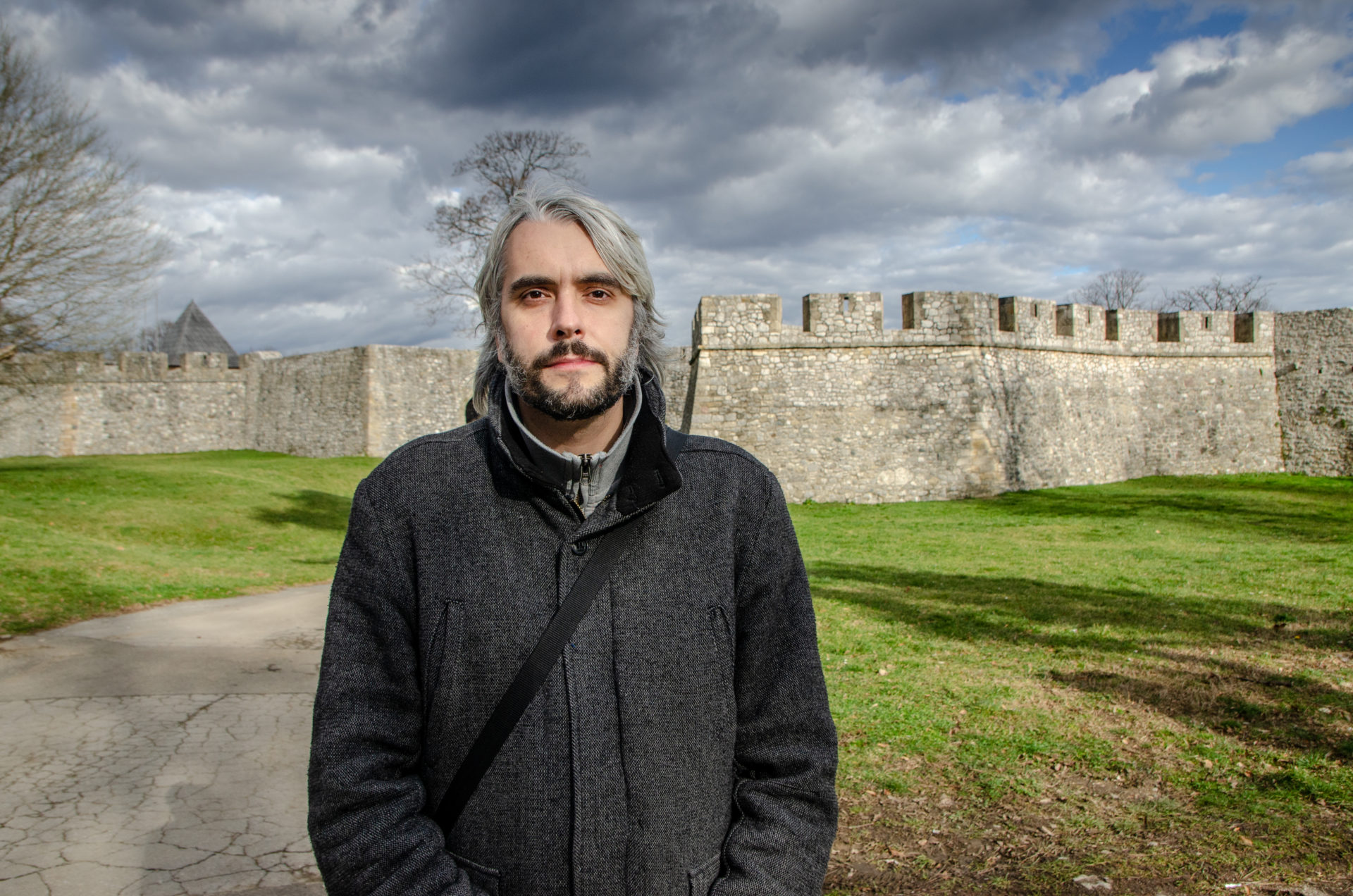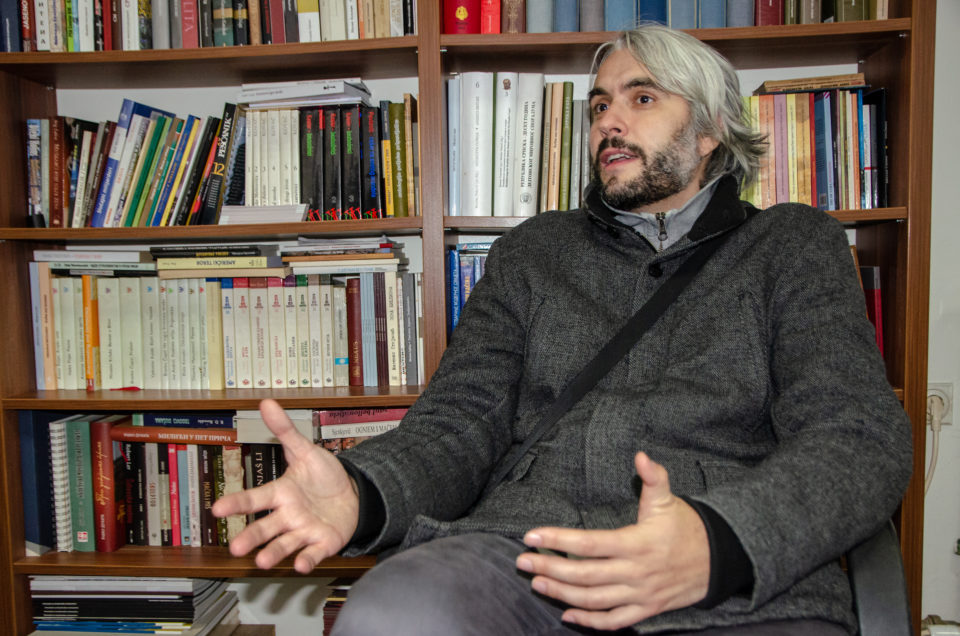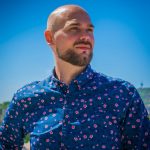
A theology and history graduate from Banja Luka, Danijel Mihić is often said to be an unusual educator. He strives to be an older friend to his students and teaches them how important it is to stay honest because, in his own words, only an honest man can be free.
Danijel teaches Orthodox religion classes in Banja Luka. For him, education is not a job, but a vocation. He tells me that if you are engaged in this profession, it is quite natural that you be socially responsible as well. Danijel also explains how our educational system essentially comes down to the memorization of an enormous amount of information which students easily forget.
“Even when they learn, children do it solely for the sake of assessment, and critical thinking, as far as I know, is only mentioned in passing when they learn about democracy,” says Danijel.
Five years ago, he launched an initiative which later grew into the Kultura Kulturi (Culture to Culture) organization. Initially, the initiative aimed to fight for the renovation of a part of the Banski Dvor cultural center. They wanted a club that would be a kind of bridge between “high” culture and those who were new to such cultural activities. He says that, fortunately, with the arrival of the great Mladen Matović to the position of director of Banski Dvor, their activism in that regard is no longer necessary. Today, this space is completely renovated and open to everybody.

“We are still looking for a way to pressure the authorities to start an independent cultural and educational center. We have plans for something big, we’re just waiting for the opportune moment,” adds Danijel.
He says that in addition to activism, volunteering is a good way for young people to get involved and contribute to positive changes in society. He believes that any volunteering activity with the right intentions will be successful, and that it is generally a good way to connect with other people. He himself has gained dozens of acquaintances throughout the region thanks to volunteering.
“Volunteering is a noble thing and you set a good example that motivates others to unlock the humanity within them, so it creates something much bigger. You get a lot of positivity all around,” Danijel adds.
He says that the most important characteristic of a person is to be constantly growing and developing. In order to achieve this, Danijel emphasizes, we should be free, and in order to be free, we should be brave enough to remain honest in the face of anything. Only an honest person is truly free. In addition, it is extremely important for a person to say what they think, regardless of whether they will make a mistake. For him, people should act on their words, communicate healthily, look at things from different perspectives, and never unthinkingly condemn people with whom they disagree. Those are the ones from whom a lot can be learnt.
“With knowledge, you overcome prejudices, rise above divisions, and seek essential common interests. For everyone everywhere, this is essential for survival as it helps us to save each other from the hopelessness that is so often present,” says Danijel.
He plans to publish two books soon. His first book, Better Days Are Coming, which he has been working on periodically over the last ten years, is a short diary of his experiences and thoughts regarding the arduous process of growing up. The second book is an extensive and somewhat more serious book in which he describes all the regions of the world from the point of view of history, geography and faith. It is penned to be published by the fall.
“It’s so much more wonderful to be outside the box. Outside the box that they’ve pushed us into, which remains largely undisturbed as our lives pass us by,” adds Danijel.
We are witnessing the departure of a large number of young people from all over Bosnia and Herzegovina, and Danijel believes that this problem is complex and layered. First and foremost, he believes that we are all more or less responsible for the condition in the country. He explains how in the last three decades, politicians have reduced culture and education to a party enterprise, at the head of which they place their people so that their orders can be executed without discussion. He says that it is difficult to identify specific culprits in the present situation, but he sees the solution in culture and education.
“We are a group of neglected people and nations, blind in sight. We do not see beyond the end of our noses. We are sickly, cynical and distrustful. Some will say that we have bigger issues than those of culture and education, but that is not true. Our biggest misfortunes stem from the fact that we are uncultured and uneducated, and we are like that because our elites leave us to gnaw away at ourselves and everyone around us. It is easier to manage the crowd if you pull the wool over their eyes,” he explains.






